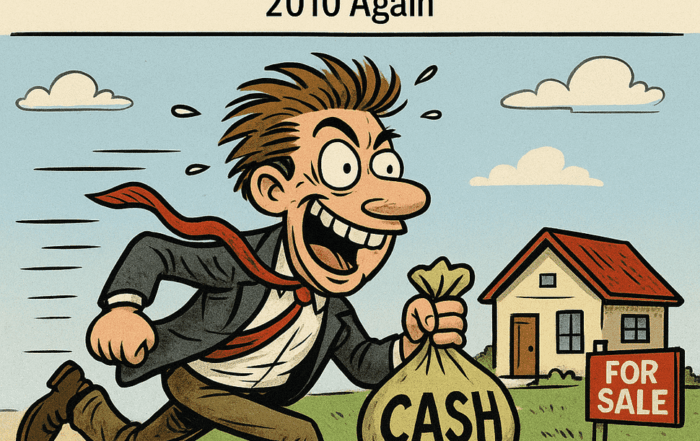
What Would Real Estate Investing Look Like Under Donald Trump’s Presidency?
With a high-profile business background and past focus on deregulation, a Donald Trump presidency brings both excitement and uncertainty for real estate investors. Understanding how Trump’s leadership style and policy trends could shape the real estate sector offers valuable insight for investors planning their next moves. We’ll break down potential impacts on taxes, regulatory changes, lending policies, and overall market dynamics, while also drawing lessons from the past. Let’s dive into what investors might expect and how they can best prepare.
1. Deregulation: Reducing Red Tape for Investors
One of the defining characteristics of Trump’s previous administration was the focus on deregulation, aiming to reduce government barriers to business. For real estate, this approach typically means easier pathways for development, fewer delays in project approvals, and potentially lower costs in compliance. For real estate investors, deregulation could make it simpler to break ground on new developments, especially in the commercial sector.
In 2017, Trump rolled back various federal regulations that some argued slowed growth, focusing on removing restrictions he viewed as unnecessary. This approach aimed to make it easier for private businesses to operate, a strategy that helped the stock market soar during his first term. For real estate, fewer regulations could mean faster approval times for construction permits and building expansions. A deregulated environment might favor developers and investors who need flexibility and quick turnaround times, especially in high-demand markets like multifamily and commercial properties.
Historically, similar deregulation initiatives under President Ronald Reagan in the nineteen-eighties and Bill Clinton in the nineteen-nineties helped stimulate development but also carried some risks, as less oversight can sometimes lead to speculative bubbles. Investors would benefit from an environment where growth is encouraged but should remain cautious of potential overheated markets.
2. Tax Benefits: Incentives for Property Owners and Investors
During his first term, Trump’s administration passed the Tax Cuts and Jobs Act (TCJA) in twenty-seventeen, which provided a significant boost to real estate investors. The TCJA introduced several investor-friendly tax provisions, such as the twenty percent deduction for pass-through entities, including LLCs, partnerships, and sole proprietorships. This deduction effectively reduced taxable income for many real estate investors, enhancing profitability. Additionally, the TCJA preserved the 1031 like-kind exchange for real estate, allowing investors to defer capital gains taxes when they reinvest in new properties.
Should a new Trump administration continue this trend, real estate investors might expect further incentives that could strengthen cash flow and long-term returns. For example, more tax breaks for property improvements or depreciation adjustments could allow investors to maximize deductions. Given the rise of inflation and the growing importance of property appreciation, these tax benefits might attract more investors to the real estate sector.
Historically, policies that favor real estate tax breaks have contributed to building significant wealth for investors. From Clinton’s tax policies in the nineties to George W. Bush’s pro-homeownership agenda, tax incentives have often driven growth in real estate. For investors, focusing on maximizing these benefits could help build long-term wealth under similar policies.
3. Opportunity Zones: Revitalizing Communities Through Real Estate Investment
Another major policy from Trump’s first term was the introduction of Opportunity Zones, which aimed to stimulate economic growth in low-income communities. Opportunity Zones provide tax advantages to investors who put capital into real estate or businesses in these designated areas, encouraging development in underserved neighborhoods. By investing in Opportunity Zones, real estate investors can defer or even eliminate capital gains taxes on profits made from these investments, making them highly attractive.
A renewed Trump presidency could expand or refine the Opportunity Zone program. For investors, this could mean more areas designated for tax-advantaged investments, allowing them to tap into emerging markets with government-backed incentives. Investing in Opportunity Zones can be a powerful strategy, especially for those focused on long-term equity growth. Properties in these areas can appreciate over time as revitalization brings new businesses, residents, and infrastructure.
However, investors should approach Opportunity Zones with a long-term view. The program’s benefits are best realized after holding the property for several years, so it aligns with those interested in appreciation rather than short-term gains. A strategic approach to these investments could create wealth while contributing to community improvement.
4. Lending Environment: Easing Access to Capital
The lending environment could also shift under Trump’s influence. His administration previously worked to roll back parts of the Dodd-Frank Act, which was enacted to tighten financial regulations after the two-thousand-eight crisis. Reducing Dodd-Frank restrictions made it easier for banks to lend, thereby increasing the availability of capital for both residential and commercial real estate investors. With less regulatory oversight, investors could see more favorable loan terms and easier access to financing, making it simpler to expand portfolios or fund new projects.
While an easier lending environment can stimulate market growth, investors should be cautious of potential downsides. Easing restrictions too much can lead to riskier lending practices, as seen before the two-thousand-eight financial crisis. However, Trump’s pro-lending approach could support growth in the real estate market, especially if the economy remains stable.
For investors, this would be a time to balance caution with opportunity. Easier access to capital allows for quicker scaling, but each investment should be carefully evaluated to avoid high leverage or overexposure in volatile markets. Experienced investors could benefit by focusing on cash flow stability while capitalizing on favorable loan conditions.
5. Inflation and Interest Rates: Navigating Economic Forces
One of the most significant concerns for any investor is the potential impact of inflation and interest rates. Trump’s policies often leaned toward keeping interest rates low, which can benefit real estate investors by reducing borrowing costs. Lower rates generally lead to lower mortgage payments and can increase the purchasing power of investors, particularly in high-cost markets.
As inflationary pressures continue to affect the economy, a Trump administration might push for Federal Reserve policies that keep interest rates as low as possible to spur growth. Lower rates are particularly beneficial for real estate as they reduce financing costs, allowing investors to acquire properties with better cash flow potential. However, with the Federal Reserve already facing pressure to control inflation, maintaining low rates might be challenging.
Investors should prepare for both scenarios. If rates remain low, it could present an excellent time to secure fixed-rate loans on long-term investments. Conversely, if inflation continues to rise, investors might focus on assets with strong cash flows that can withstand higher rates, such as multifamily or commercial properties in high-demand areas.
6. Market Dynamics: The Shift Toward Multifamily and Industrial Real Estate
A Trump-led economic environment could spur increased demand in specific sectors like multifamily housing and industrial real estate. With a focus on domestic growth, industrial properties might benefit from a pro-manufacturing agenda. As companies bring operations back to the U.S., there’s an increased need for warehouses, distribution centers, and manufacturing facilities. For investors, this could mean significant opportunities in the industrial real estate market, particularly in logistics and e-commerce hubs.
Additionally, the multifamily sector may see continued growth as housing affordability challenges push more people toward rental properties. With favorable lending conditions and potential tax incentives, investors could find lucrative opportunities in multifamily developments. These properties typically offer stable income streams and have shown resilience in various economic cycles.
Historically, multifamily and industrial properties have been attractive during periods of economic growth and low-interest rates. Investors looking to diversify their portfolios might consider adding these asset types, especially if they anticipate favorable economic policies that support these sectors.
7. The Broader Economic Impact: Preparing for Uncertainties
While Trump’s policies generally favor growth, the real estate market is influenced by various factors, including global economic conditions, trade policies, and domestic fiscal policy. As we saw during Trump’s first term, international trade tensions can create economic uncertainties that impact all sectors, including real estate. Investors should be aware of these broader economic forces and remain agile in their strategies.
Trump’s previous focus on America-first policies could again lead to shifts in trade, which can influence the cost of construction materials and labor. For real estate developers, rising costs could affect project budgets and timelines. Investors might want to factor in potential price volatility when planning future projects.
Additionally, political uncertainty can create market volatility, impacting investor confidence. While some may find Trump’s pro-business stance reassuring, others may be cautious of policy reversals or international tensions. For investors, staying informed about global events and maintaining a diversified portfolio can help mitigate these risks.
Conclusion: Strategizing for a Trump Presidency
Navigating the real estate market under a Trump presidency requires strategic thinking and adaptability. Investors should keep an eye on potential tax benefits, embrace opportunities in multifamily and industrial sectors, and remain cautious in volatile lending environments. While deregulation and pro-growth policies could spur economic expansion, it’s essential to approach each investment with a focus on long-term stability and resilience.
By learning from past policies and adjusting strategies accordingly, real estate investors can thrive even in a landscape marked by political and economic shifts. With thoughtful planning and a proactive approach, investors can make the most of potential opportunities while preparing for the challenges ahead.
Pick your expert. Book your free 15-minute consult now. We are here to help!
Our Top Articles
The College Rental That Nearly Schooled the Landlord: Lessons from Bradley’s Student Housing Fiasco
Jorge Vazquez2025-07-10T19:32:35+00:00July 10th, 2025|Comments Off on The College Rental That Nearly Schooled the Landlord: Lessons from Bradley’s Student Housing Fiasco
A "Safe Bet" Gone Sideways Bradley is one of those agent-investors we all admire. Sharp, experienced, hands-on, [...]
Opportunistic Buyers Are Back: Why Florida’s Real Estate Market Feels Like 2010 Again
Jorge Vazquez2025-07-09T01:10:13+00:00July 8th, 2025|Comments Off on Opportunistic Buyers Are Back: Why Florida’s Real Estate Market Feels Like 2010 Again
If you were around during the aftermath of the 2008 crash, you might remember that eerie silence around 2010—the [...]
Can Buying Real Estate in Florida Help You With Immigration?
Jorge Vazquez2025-07-07T18:54:31+00:00July 7th, 2025|Comments Off on Can Buying Real Estate in Florida Help You With Immigration?
Can Buying Real Estate in Florida Help You With Immigration? So you’re wondering, “If I buy a couple rental [...]
Property Profit Academy:
✔ Learn to buy properties with little to no money down.
✔ Build a $10M portfolio step by step.
✔ Master strategies like BRRRR and house hacking.









